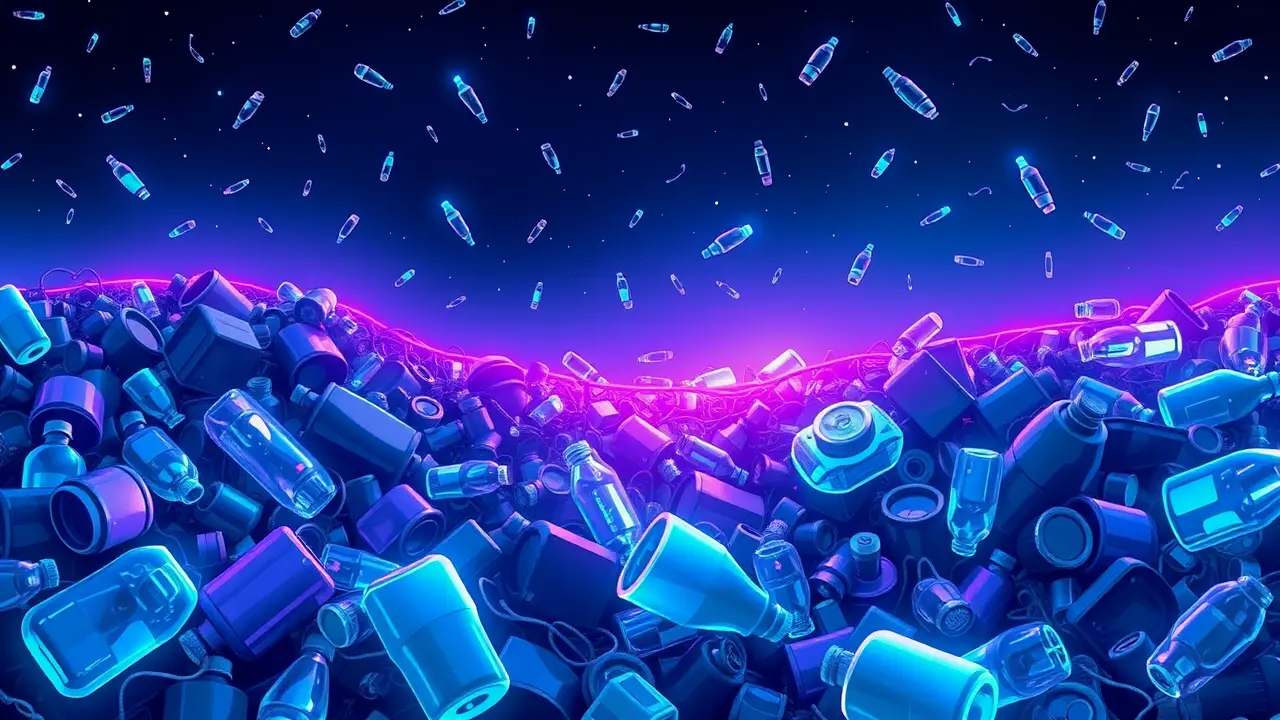
SciencechemistryGreen Chemistry
MacroCycle's Energy-Efficient Plastic Recycling at TechCrunch Disrupt
RA
Rachel Adams
2 weeks ago7 min read5 comments
In a world choking on the very convenience it created, where the specter of climate change looms larger with each passing season, the announcement from MacroCycle at TechCrunch Disrupt feels less like a corporate pitch and more like a gasp of clean air. Their breakthrough, a method that dramatically slashes the energy required to recycle plastic, strikes at the very heart of our dual crises: waste and energy consumption.For decades, the recycling narrative has been a frustrating paradox; the process to break down a simple water bottle often demanded so much power that its environmental benefit was negated, creating a perverse economic incentive for manufacturers to default to cheap, virgin plastic derived from fossil fuels. This has fueled a linear economy of 'take-make-dispose' that is visibly suffocating our oceans and landscapes.MacroCycle’s approach, however, promises to recalibrate this entire equation, potentially lowering costs to the point where recycled material can genuinely compete with its virgin counterpart. Imagine a future where the plastic waste collected from our blue bins isn't downcycled into a lower-grade product or, worse, shipped overseas to become another nation's problem, but is instead reborn as a high-quality material, closing the loop in a way that is both ecologically sound and economically viable.This isn't merely a technical tweak; it's a fundamental challenge to the petrochemical industry's dominion. The implications ripple outward, potentially reducing our reliance on oil extraction, curbing greenhouse gas emissions from plastic production, and offering a tangible solution to the mounting waste that threatens biodiversity from the Mariana Trench to the alpine forests.Yet, as with any nascent technology, the path from dazzling demo to global implementation is fraught with challenges. Scaling such a process to industrial levels, ensuring it can handle the complex cocktail of polymers in our waste stream, and building the infrastructure to support it will be a Herculean task.We must also be vigilant, learning from the lessons of biofuel and other well-intentioned solutions that sometimes created unintended ecological side effects. The true test for MacroCycle will be whether its process is as clean as promised when operating at the scale of our global addiction to plastic.Nevertheless, this development represents a critical pivot, a moment where human ingenuity offers a chance to clean up the mess we've made, not with a broom, but with a brilliant redesign of the system itself. It’s a reminder that the most profound solutions often lie not in abandoning the materials of modern life, but in learning to live with them in a way that honors, rather than plunders, the natural world.
#featured
#MacroCycle
#plastic recycling
#energy reduction
#cost competitive
#TechCrunch Disrupt 2025
Stay Informed. Act Smarter.
Get weekly highlights, major headlines, and expert insights — then put your knowledge to work in our live prediction markets.
Related News
Comments
Loading comments...
© 2025 Outpoll Service LTD. All rights reserved.